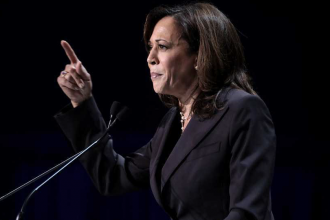
Monday August 26, 2024
Is the State of Corporate Activism Filled With Uncertainty?
However, navigating this terrain comes with its own set of ever-evolving complexities. So, what are the current challenges and opportunities that face corporate activism? In this blog, we will explore the nuances of the current corporate activism landscape from a US perspective, drawing on insights from this year’s Global Communications Report by the USC Center for Public Relations.
Do people want organisations to engage in corporate activism?
According to the Global Communications report, less than half of the US population believes that any organisation needs to meet their expectations in addressing social challenges. However, most believe that non-profit organisations have the most positive impact in addressing social issues, while the 2024 presidential candidates are considered the least impactful.
But how much do people expect organisations to engage in corporate activism? PR professionals (85%), business leaders (72%), investors (96%), and employees (64%) believe that companies have a responsibility to engage with social issues. Interestingly, consumers put less emphasis on the matter than the other groups of individuals, with only 61% believing that organisations are obligated to address social challenges.
It is evident that the majority of the public is currently pro-corporate activism, but it is also worth noting that there has been a notable shift in public sentiment. This year, the percentage of stakeholders who agreed that organisations should take a social stance decreased compared to the previous year — with investors as the only exception. (Read more: Should organisations voice their stance or stay silent?)
Could the lack of confidence in an organisation’s capability to engage in corporate activism in an impactful way be responsible for the shift? After all, it was also found that only 13% of consumers believed that organisations are already engaging in corporate activism meaningfully, compared to 41% of investors who seem to exhibit constant optimism in organisational purpose.
What are the challenges facing organisational purpose?
It is clear that consumers are not confident in an organisation’s ability to play a positive role. In fact, 53% of consumers think businesses often ‘trust-wash,’ which happens when companies are not as committed to society as they claim to be.
This could result from a gap between what organisations want to engage in and what consumers want to see from them. After all, as individuals, we all have different perceptions, stances, and subjects that we are more passionate about than others. The Global Communications Report 2024 even details that senior executives freely admit that they often do not feel as passionately about certain issues as consumers do.
For example, the top three issues that consumers think organisations should engage with are the American economy, mental health, and racism and race relations. Meanwhile, senior-level executives feel that consumers want businesses to engage mainly with the issues of the American economy, diversity, equity, and inclusion (DEI), along with climate change and sustainability.
Could it be that consumers do not think organisations are making positive contributions because the senior executives, employees and investors themselves do not entirely believe in their company’s purpose? Thus, a possible solution could be for companies to approach their purpose more authentically, allowing them to align their actions with their stated values.
Will the 2024 elections impact the corporate activism landscape?
According to the report, the 2024 elections will impact how a company approaches social issues. Most stakeholders, excluding PR professionals, expect organisations to take a more public stance on issues during the 2024 elections. On one hand, it is a period of uncertainty, but maybe it is due to the unpredictability of the situation that others feel compelled to voice their stance.
A fourth of stakeholders said the election’s results would determine their stance over the next four years. For example, more people believe that corporate investment in ESG and company engagement with societal issues will increase more if Donald Trump is elected over Joe Biden. On the other hand, people are more confident that the health of the economy and civility in public discourse will improve under Joe Biden’s presidency.
However, these perspectives are nuanced, as it all boils down to the individual’s political ideologies: Democrat or Republican. While 72% of Republicans believe that academic freedom of speech will improve if Trump assumes office, 70% of Republicans believe the same if Biden wins the election.
Regardless of who wins or what the outcome is, the report showcases that shareholders’ perceptions of what social issues are important and need to be addressed will shift according to the political landscape.
Curzon PR is a London-based PR firm working with clients globally. If you have any questions, please feel free to contact our Business Development Team bd@curzonpr.com







Follow us